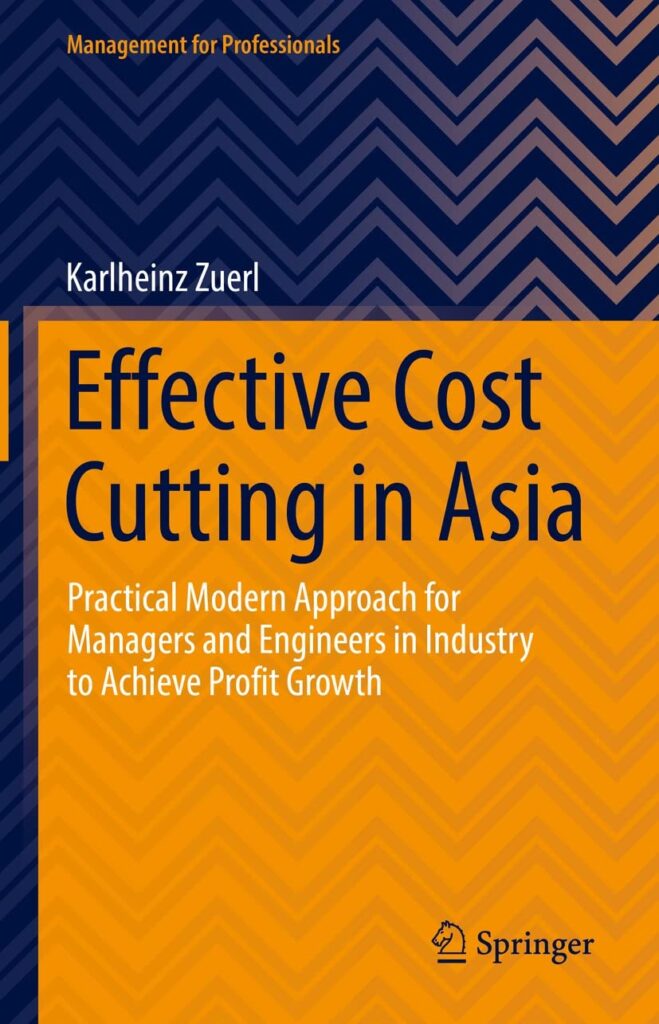
China’s Economy in 2025: Challenges and Prospects
China’s economy had a tough time in 2024 – and 2025 could be even more challenging. In addition to long-term structural problems, the trade and technology war with the US threatens to intensify after the US elections in 2024. The uncertainties have already left their mark: Swiss bank UBS has cut its forecast for China’s economic growth in 2025 from 4.5 percent to 4.0 percent.
Shrinking margins and fierce competition
The situation for companies in China remains tense. Profit margins have continued to fall in many sectors due to intense price pressure. Weak consumption is a particular drag: Consumers are reluctant to spend, indicating waning confidence in the economic recovery.
Overcapacity in key sectors
Government subsidies have led to overcapacity in promising sectors such as solar systems, electric cars and batteries. This overproduction is depressing prices and hurting profitability. What once began as a strategic subsidy is now creating new challenges for companies.
Debt and the housing crisis
Another problem is the high level of debt of regional governments. Including local government financial vehicles (LGFVs), their debt amounts to about 80 percent of GDP. Debt restructuring and reduction are progressing slowly. At the same time, the real estate crisis is exacerbating the situation: many local governments were heavily dependent on land sales revenues, which have now collapsed. The link between the real estate sector and public finances is proving to be a key vulnerability in the economy.
Looking ahead
China’s economic challenges are complex and multifaceted. The government must act decisively to regain the confidence of businesses and consumers. Structural reforms, a more efficient allocation of resources and a reduction in geopolitical tensions could be important steps in setting the stage for a more stable future.
Recent developments in the Chinese economy and sector overview
China’s economy continues to be in the global spotlight. How is the Chinese economy performing and what location factors continue to make the country attractive? What trends are shaping the key sectors and what should companies be aware of in terms of the legal framework? Here we give you an insight into our combined knowledge of the country. Take advantage of the expertise of our interim management and consulting teams to successfully meet the challenges in Asia and the BRICS countries.
Recommended action: Respond quickly
One thing is certain: there is bad news coming out of China every week that needs to be assessed on the ground before any decisions are made. Do not hesitate to take the necessary steps to respond to the dynamics of the market.
Focus on key sectors
Automotive Industry
The automotive industry in China remains a key sector of the economy, especially in the area of electric mobility. According to a forecast by the Center of Automotive Management (CAM), more than one in four new cars in China will be electric. The country is thus maintaining its position as a leading market for alternative drive systems. But the competition is getting tougher. German manufacturers are not only facing each other, but also a growing number of domestic competitors. The first bankruptcies among Chinese manufacturers show how tough the market has become.
Increasing trade tensions with key partners such as the European Union are having a negative impact on exports of electric vehicles from China. Leading industry players have called on the government to extend trade concessions for older vehicles to support domestic sales. Despite a sales boom at the end of 2024, even an industry leader like BYD faces new challenges in 2025. The company has strengthened its role as a market leader and is increasingly squeezing out smaller suppliers.
Construction Industry
Construction remains a mainstay of the Chinese economy. However, the sector is struggling with high debt levels and weakening demand. Land sales, which have been an important source of revenue for local governments, are in sharp decline. This is having a ripple effect throughout the construction and ancillary industries.
Legal framework
Companies operating in China should keep a close eye on the regulatory environment. Regulatory changes can occur at short notice and have a significant impact on day-to-day business. Working closely with local experts is essential to minimize risks and maximize opportunities.
The bottom line
Despite the challenges, China remains a key market for many industries. Companies need to remain flexible and responsive to take advantage of the opportunities this dynamic market offers. Our experts are here to help you make informed and efficient strategic decisions.
The smart way
Running a subsidiary in China in these turbulent times is not a project to be undertaken on the side. The key is planning and a willingness to trust experts. GTEC has successfully completed numerous downsizing and restructuring projects in China – and could offer the right solution for your company.
Sound interesting? Book a no-obligation meeting at https://calendly.com/karlheinzzuerl and request relevant case studies. With the right support, even the most challenging project can be a success.
Best regards
Karlheinz Zuerl
CEO of German Technology & Engineering Cooperation (GTEC)
The system doctor and problem solver in your industry in Asia

- Expert of the Year 2024 in Interim Management (Steinbeis Business School)
- President 2023/2024 of Rotary Club Suzhou/China
- Top Interim Manager 2022 (Capital Magazine)
- Quality-assured interim manager (United Interim)
- ATTA (Asia Transformation and Turnaround Association)
- Diplomatic Council Think Tank (Consulting of United Nations)
- Financial professional: Profitable investments in GTEC with an interest rate of 6-12%/year
- Book author Springer/Hanser/Oldenbourg/GTEC (see Amazon.com)
You will find the latest publication at Effective Cost Cutting in Asia at Amazon.de and Amazon.com (English edition):

Experts in the Automotive Industry Asia
You need one, but don`t want to hire one permanently?
Our solution: To rent our experts
- On pay-to-use basis
- Completely flexible
- Contract can be cancelled any time
Clearly represented reports and dashboards inclusive!

